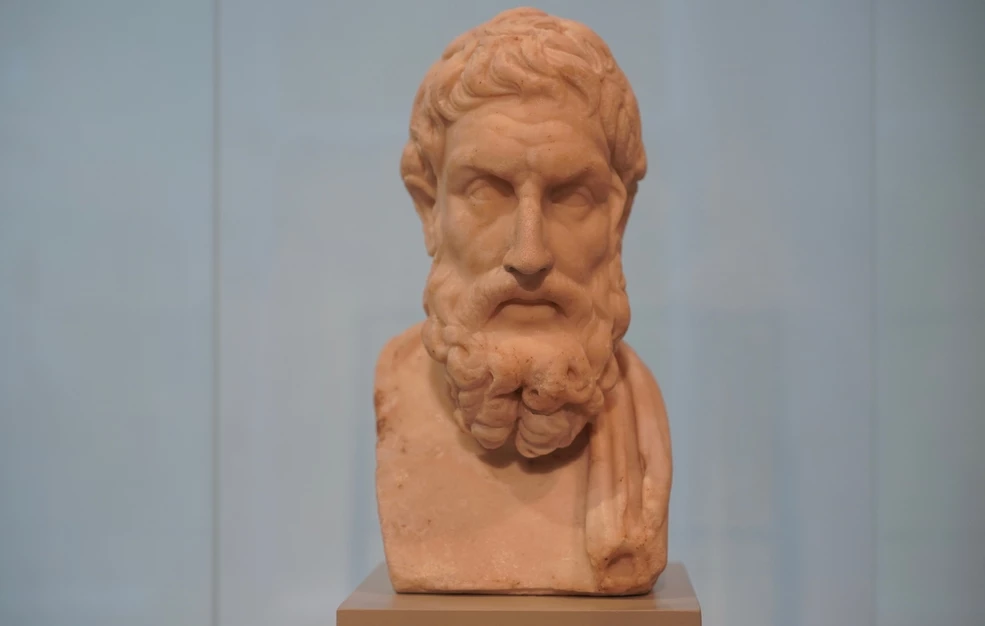Greece and the United States reaffirmed their excellent bilateral relations and mutual desire to further deepen cooperation in a series of areas, from defense and security to investment and energy and to education and culture, according to a joint statement released on Monday after the meeting of Foreign Minister Nikos Dendias and his American counterpart Mike Pompeo in Thessaloniki.
The two sides conducted a high-level review of the US-Greece Strategic Dialogue, ahead of the third Strategic Dialogue to be held in Washington in 2021.
The joint statement follows:
"The United States and Greece shared views on the Eastern Mediterranean and reaffirmed their belief that maritime delimitation issues should be resolved peacefully in accordance with international law. In this regard, the United States welcomed Greece’s confirmed readiness to engage with other countries in the region to achieve maritime delimitation agreements through dialogue and in accordance with international law. The United States and Greece also reiterated their dedication to enhancing their close cooperation as NATO Allies, using all appropriate means at their disposal, to safeguard stability and security in the wider region.
The two sides reiterated their desire to continue and strengthen their cooperation in various sectors in the framework of the 3+1 format (Cyprus, Greece, Israel, and the United States), which was launched in Jerusalem in March 2019, as this partnership can contribute to the promotion of peace, stability, security, and prosperity in the Eastern Mediterranean and the wider region. The United States and Greece reiterate their support for the integration of all the countries of the Western Balkans into European and Transatlantic institutions according to the choice of their citizens.
They highlighted Greece’s efforts to this end, noting the continued relevance of the historic Prespes Agreement and North Macedonia’s subsequent accession to NATO, while underscoring the importance of its consistent implementation in good faith.Greece and the United States expressed their intent to further enhance their strategic defense and security partnership by expanding and deepening the U.S.-Greece Mutual Defense Cooperation Agreement, which was last updated in October 2019 and greatly contributes to the security of both nations. In the coming Strategic Dialogue, both sides intend to discuss how to further assist each other in maintaining strong, capable, and interoperable militaries.
The United States and Greece took note of their security cooperation based upon a shared interest in protecting the safety and security of both nations from terrorists, transnational criminal organizations, and other threat actors.
Despite the global pandemic, outstanding U.S.-Greece law enforcement cooperation on arrests, seizures, and extraditions has continued unabated.Moreover, the two countries took stock of continued improvement in border security and counterterrorism information sharing and collaboration according to international standards. They committed to full implementation of the 2016 Joint Statement on Greece’s participation in the Visa Waiver Program, including beginning issuance of an updated national identification card and fully collecting and analyzing air passenger data.
The United States and Greece look forward to enhancing trade and investment between our two countries. The two governments noted that Greece substantially improved its protection and enforcement of intellectual property in 2019, which resulted in Greece’s removal from the Office of the United States Trade Representative’s Special 301 Report this year. The United States and Greece welcomed the inauguration of new investments and acquisitions by U.S. companies in Greece and reaffirmed their commitment to encourage that trend. The two governments look forward to increasing cooperation on trade. The United States and Greece attach great importance on the cooperation on artificial intelligence, cyber security, 5G, and privatization of strategic infrastructure. The two countries remain committed to enhancing the capacity of women to prosper in the workforce, succeed as entrepreneurs, and be better positioned to foster economic growth.
The United States and Greece welcomed the completion of the Greek section of the Trans Adriatic Pipeline and looked forward to discussing at the coming Strategic Dialogue their mutual support for the Interconnector Greece-Bulgaria, the floating storage regasification unit project at Alexandroupoli, the privatization of the Kavala underground gas storage, the Interconnection Greece - North Macedonia project, and other commercially viable projects, which could include the EastMed Gas Pipeline.
Both sides welcomed the September 22 formal establishment of the EastMed Gas Forum as a regional organization and the ongoing successful cooperation on energy through the 3+1 process. Greece and the United States underlined the participation of ExxonMobil in partnership with Total and Hellenic Petroleum in offshore exploration blocks off the coast of Crete, as well the potential opportunities for U.S. investment in the renewable energy sector, with the recently ratified Greek Law 'Modernization of Environmental Legislation.
The United States and Greece reaffirmed the centrality of people-to-people ties in their bilateral relations. They look forward to marking Greece’s independence bicentennial in 2021, as well as exchanging exhibitions and cooperation between museums. The United States and Greece reaffirmed their intent to strengthen links between U.S. and Greek universities and create new joint, dual-degree, and study abroad programs. Both countries will continue to support ongoing educational and academic exchanges, including the Fulbright Program in Greece, which marked its 72nd anniversary in 2020. The United States and Greece agreed to continue their longstanding cooperation to protect Greece’s cultural property. Both countries also agreed to cooperate on capacity building within the creative industries, including in the film sector. The United States and Greece also agreed to explore public-private partnerships in culture and technology."
Source: AMNA









